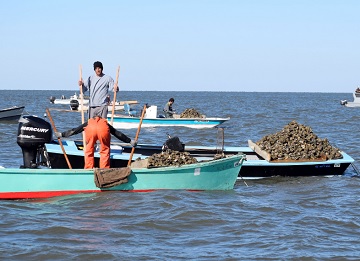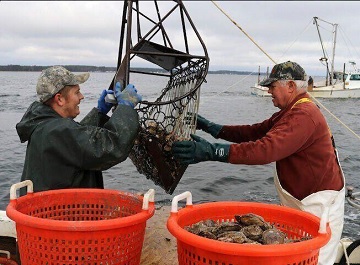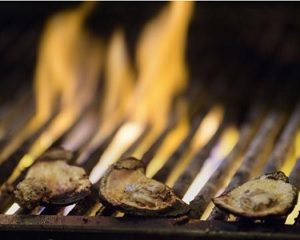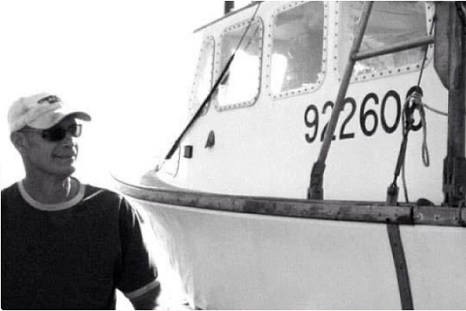Tag Archives: oyster harvest

Alabama’s Oyster Harvest Off to Great Start
The state’s oyster season opened on October 3, and the oyster catchers are busy plucking those delicious bivalves from the reefs in coastal waters. Scott Bannon, Alabama Department of Conservation and Natural Resources’ Director of the Marine Resources Division, said both the number of catchers and sacks of oysters harvested per day are up from last season. “To my knowledge, we had a record number of catchers for an opening day at 243,” Bannon said. “The max we had last year on any given day was 211. Last year, we averaged 180 catchers a day. This year, we’re averaging 220. “The harvest is going well. We averaged about 800 sacks a day last year, and we’re averaging about 1,200 sacks a day this year.” >click to read< 07:42

Maryland’s oyster harvest largest in 35 years
Bill Sieling, executive vice president of Chesapeake Bay Seafood Industries Association, attributes the excellent haul to both Mother Nature and the canniness of the Maryland oyster industry in putting available resources to their best use. “The combination of having the good substrate there for the young oysters to set upon and then having the oysters available in the area to produce the spawn which is what produces the spat set and therefore had a place to set and grow – and it’s as simple as that,” It takes three years for an oyster to grow to legal market size. This year’s harvest was the culmination of years of investment in the Bay’s oyster growing conditions, Sieling said. >click to read< 13:04

‘It’s grim.’ After spring floods, Louisiana oyster harvest slows to a trickle
Fall is when Louisiana normally begins harvesting a torrent of oysters. This year, the torrent is barely a trickle. Restaurants have resorted to rationing. They’re reaching far beyond their normal local supply chains to get whatever boxes and sacks of oysters they can find, revising menus and tapping stockpiles of frozen product to keep fried oysters on their po-boys and seafood platters. Many in the business are calling the shortage the worst they’ve ever seen, worse than the aftermath of hurricanes Katrina and Rita in 2005 or the BP oil spill disaster in 2010, both of which devastated the local industry. Photo’s >click to read< 08:29















































